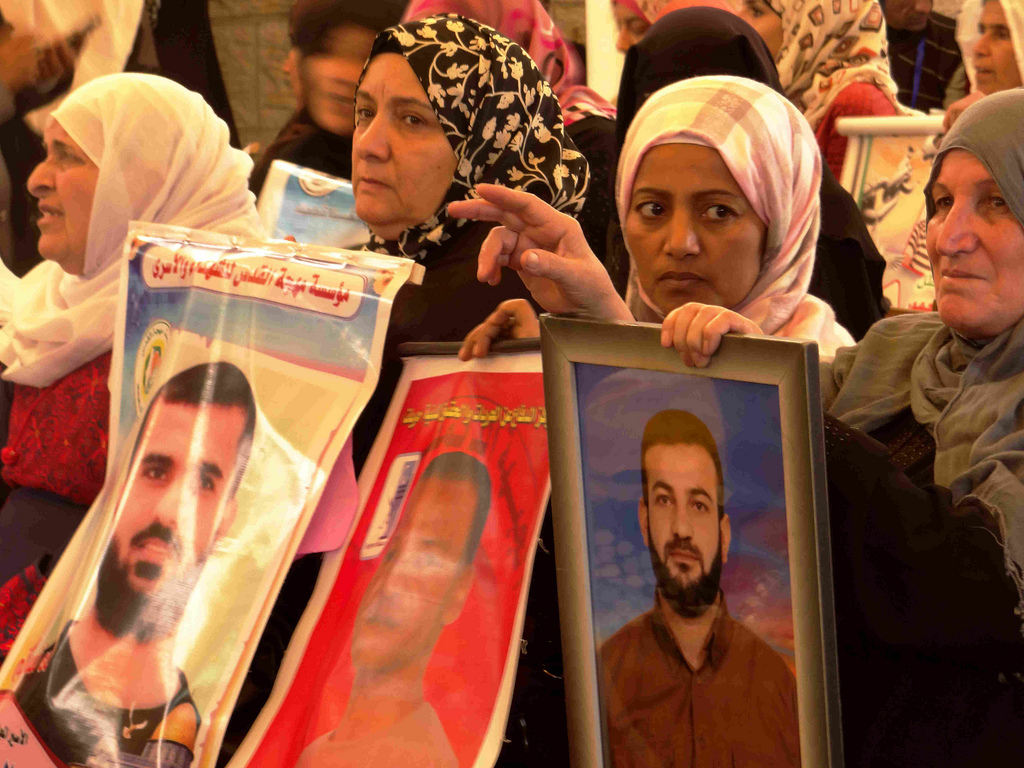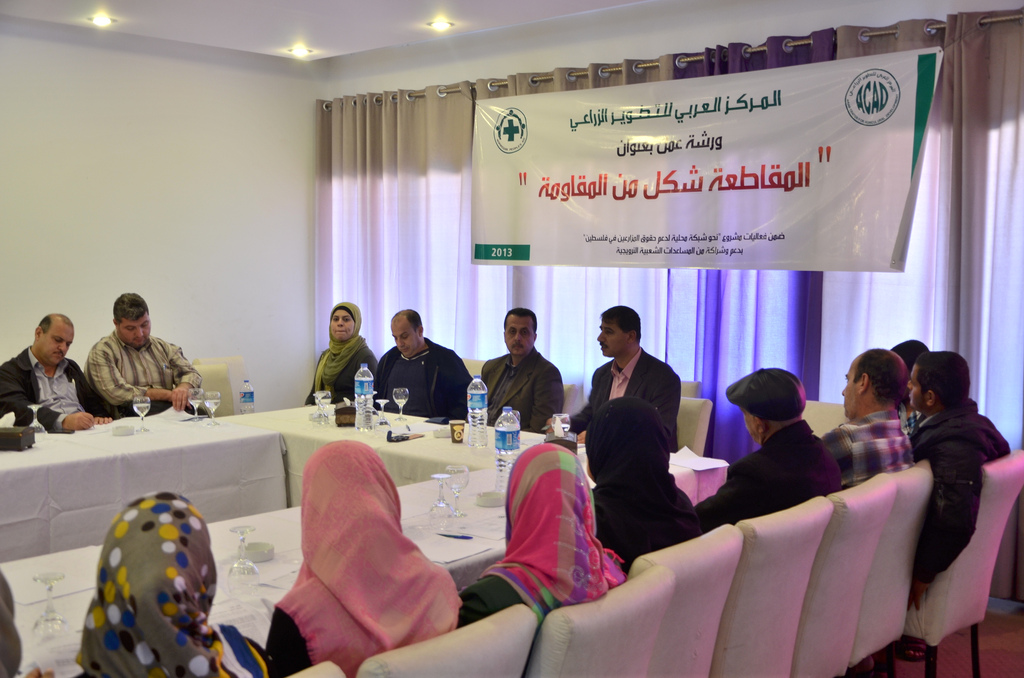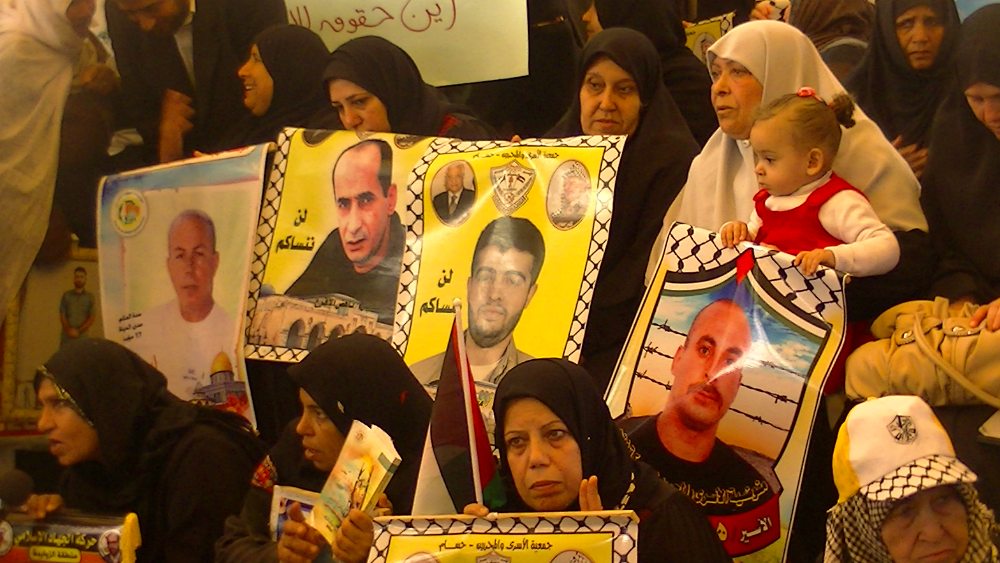Tag: BDS
-
Photos: Palestinians rally in Gaza Red Cross against Israel’s detentions and Italy ties
3rd December 2013 | International Solidarity Movement, Marco Varasio | Gaza, Occupied Palestine Like every Monday morning, relatives and friends, as well as local and international activists, gathered at the International Committee of the Red Cross in solidarity with the Palestinian political prisoners. The rally started with the protesters chanting slogans, especially about their homeland Palestine…
-
BDS workshop draws dozens of farmers and agricultural officials in Gaza
28th November 2013 | International Solidarity Movement, Maria del Mar Fernandez and Mohammed Abedullah | Gaza, Occupied Palestine On Monday, 25th November 2013, a conference on the Boycott, Divestment and Sanctions (BDS) movement against Israeli apartheid, colonization and occupation was held in Gaza City by the Arab Center for Agricultural Development (ACAD) and Norwegian People’s Aid…
-
Palestinians hold solidarity vigil to remember prisoners in Israeli jails
25th November 2013 | Corporate Watch, Tom Anderson and Therezia Cooper | Gaza, Occupied Palestine Palestinians held a demonstration at the offices of the International Committee of the Red Cross (ICRC) in Gaza City today in solidarity with Palestinian political prisoners in Israeli jails. The demonstration has been held every week since 1995 to remember the prisoners…



